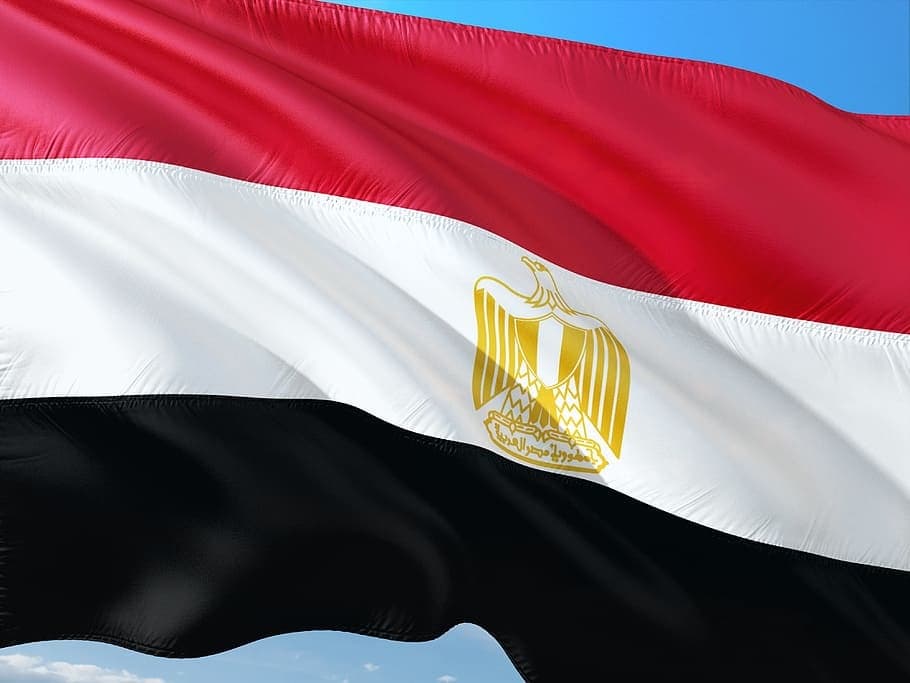There are very few things about which Cairo’s elite and its Muslim Brotherhood critics can agree. But last week, both sides cheered for a 23-year-old Egyptian border guard named Mohamed Salah who murdered three Israeli soldiers and wounded another two. They hailed him as a martyr and defender of Palestine, even though Egypt has been at peace with the Jewish state since 1979.
Peace has clearly failed to temper the hatred of Israel that was pervasive in Egyptian culture prior to the Camp David Accords. So it is time for a new approach — one that begins in Tel Aviv, not Cairo. It is time for the Egyptian Embassy in Israel to become an engine for dialogue, not a sleepy post that is barely visible to Israelis.
The Egyptian government prohibited a public funeral for Salah to avoid glorification of his terrorism. Nevertheless, Alaa Mubarak, the son of former President Hosni Mubarak, saluted Salah on Twitter, while former Maj. Gen. Samir Farag — under whom Egypt’s current President, Abdel Fattah el-Sisi, once served — called Salah a hero repeatedly in Arabic media. Turkey-based Muslim Brotherhood Sheikh Essam Talima praised him as “a heroic martyr” whose low educational attainment did not prevent him from defending the Muslim nation.
Reactions to the attack inside Egypt reflect the vast gap between a government that values its relationship with Israel and a public that seethes with anger at the Jewish state. President el-Sisi has set the tone. Israelis gushed last year when he crossed the floor at the International Energy Conference in Cairo to give a warm greeting to Israeli Energy Minister Karine Elharrar. In March, el-Sisi acknowledged publicly during an educational symposium with young military officers that his government cooperated with Israel in Sinai. During Ramadan, for the first time in decades, the Egyptian General Intelligence Directorate did not produce any anti-Jewish, anti-Israel soap operas. (These shows serve to magnify the importance of the Egyptian intelligence apparatus by presenting Jews and the Jewish state as a grave threat to the country’s interests.)
While el-Sisi’s gestures are better than nothing, they do not represent any kind of sustained investment in making the Egyptian public understand that Israel and the Jews are no longer enemies. Rather, these overtures give Egypt’s president something to brag about when he meets with influential Jewish-American groups and other worldwide pro-Israel organizations. El-Sisi can risk making positive gestures toward Israel because his control of local media is so tight — local news simply did not cover his positive gestures toward Israel over the past year, ensuring there would be no backlash.
The most pragmatic way for el-Sisi to start changing the conversation about Israel inside Egypt may be to begin in Tel Aviv, where Cairo maintains a lethargic Embassy whose staff is not curious about Israel and does little to promote a warmer peace. For example, the Embassy does not facilitate visits for Egyptian businessmen and academics interested in cooperating with their neighbor to the north. Egyptian diplomats barely participate in public events organized by the Israeli foreign ministry, academic institutions, or commercial entities. Many of them do not speak either English or Hebrew and they live in Arab Israeli towns. The few who have command of English and Hebrew spend most of their time between Ramallah and Bethlehem. Unlike every other Egyptian Embassy, the mission in Tel Aviv has no official Twitter account or Facebook page.
To encourage a change, American and Israeli officials must communicate to their Egyptian counterparts behind closed doors that keeping their relationship with Israel secret is the wrong approach. Especially after last week’s terror attacks, Egyptian military leaders should capitalize on el-Sisi’s brief mention of cooperation with Israel in Sinai to challenge flawed views of the Jewish state within Egyptian ranks. Terror incidents like the one last week draw on a well of antipathy toward Israel. The positive reaction on social media and in the streets toward Salah’s actions illustrate the need for change.
U.S. congressional delegations visiting Israel should make a special point of knocking on the door of the Egyptian embassy. Cairo’s envoy, Ambassador Khaled Azami, did not even attend the funeral services of the soldiers killed last week, nor did he visit the wounded. Those who visit Azami should point out how he can revive his diminished status in town by becoming more of a public figure, since Abraham Accords ambassadors are celebrated everywhere in Israel.
It will not be easy to address the deep anti-Israel and anti-Jewish prejudice in Egyptian society. Yet by starting in Tel Aviv, the government may be able to begin laying the foundation for real normalization.
Haisam Hassanein is an adjunct fellow at FDD, analyzing Israel’s relations with Arab states and Muslim countries. Hassanein earned his M.A. in Middle Eastern & African History from Tel Aviv University. He was the first Egyptian to be named a graduate school valedictorian by an Israeli academic institution. Haisam speaks Hebrew, Arabic, and English.

